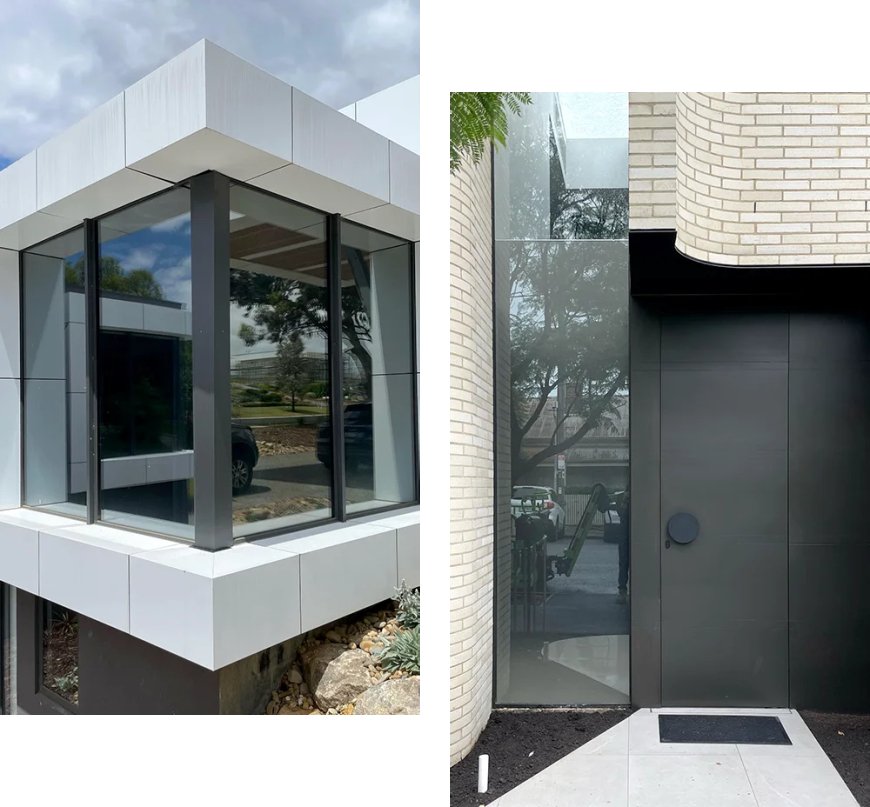Window Tinting in Melbourne: A Practical Upgrade You Won’t Regret

If you’ve ever sat in your car on a scorching Melbourne summer afternoon — windows up, A/C blasting, but still sweating — then you already know the value of shade. But shade isn’t always just about trees or blinds. Sometimes, the best kind of comfort comes from something nearly invisible: window tinting.
I used to think window tinting was all about aesthetics — a sleek finish, a “cool car” vibe. But after getting both my car and home windows tinted last year, I realised it’s much more than that. Living in a city like Melbourne — with unpredictable weather, high UV exposure, and rising energy costs — window tinting is less of a luxury and more of a smart, everyday upgrade.
Here’s everything I learned along the way.
Melbourne's Climate Demands a Little Extra Protection
Let’s face it, Melbourne weather has a reputation. It can turn from bright sunshine to sideways rain in less than an hour. And during summer, temperatures can soar well into the 40s — leaving your home or car feeling like an oven.
Tinted windows help block out heat and harmful UV rays, which not only keeps you cooler but also protects your furniture, flooring, and skin from long-term sun damage. Before I had my house windows tinted, the afternoon sun used to bleach my curtains and make my living room unbearable. Now? It’s consistently cooler, and the air conditioner doesn’t have to work overtime.
The Benefits Go Beyond Comfort
✅ UV & Heat Protection
Most quality window films block up to 99% of UV rays. This isn’t just a health benefit — it also prevents sun damage to your interiors. Whether it’s a leather car seat or timber flooring, tinting helps preserve colour and longevity.
✅ Energy Efficiency
One of the unexpected bonuses? Lower power bills. By keeping rooms cooler in summer and warmer in winter, window tinting cuts down the need for heating and cooling. Over time, that adds up.
✅ Increased Privacy
Living on a busy Melbourne street, I got tired of feeling like I was living in a fishbowl. Tinted windows give you daytime privacy without needing to close the blinds or curtains. From the outside, it’s harder to see in — but from the inside, visibility remains clear.
✅ Glare Reduction
This was huge for me when working from home. The glare on my laptop used to drive me nuts, especially during the late morning sun. After tinting the windows in my home office, I can work more comfortably for longer periods.
✅ Safety
Some films are designed to hold broken glass in place — a valuable bonus for both car and home windows, especially during storms or break-ins.
Choosing the Right Tint in Melbourne
Window tinting isn’t one-size-fits-all. You need to choose the right type for your space, needs, and even legal compliance (more on that in a bit).
Types of Films Available:
-
Dyed Film – Affordable and good for basic privacy, but not great at heat rejection.
-
Carbon Film – Offers a deep matte look with excellent UV and heat control.
-
Ceramic Film – The premium option. High clarity, no signal interference, excellent performance in all categories.
-
Reflective Film – Often used for commercial buildings, provides excellent privacy and heat rejection.
If you’re unsure what to pick, a good installer will walk you through your options, explaining the pros and cons for Melbourne’s unique climate.
What About Legal Limits?
For car window tinting in Victoria, there are laws you need to follow:
-
Front side windows: Must allow at least 35% light transmission.
-
Rear and back windows: Can be darker — down to 20% VLT (Visible Light Transmission).
-
Windscreen: Only a top strip (usually about 10%) can be tinted, and it must be non-reflective.
Building windows are a little more flexible, but it’s worth checking council rules if you're in a heritage area or apartment block with strata restrictions.
How Much Does Window Tinting Cost in Melbourne?
It depends on your goals. Here’s a rough breakdown:
-
Cars:
Small sedan – $200–$350
SUV or 4WD – $300–$500
Premium ceramic films – $500+ -
Residential Windows:
Around $50–$90 per square metre depending on film quality and installation difficulty. -
Commercial/Office Tinting:
Usually priced per project. Large jobs often qualify for bulk pricing.
Make sure you get quotes from reputable local installers — ideally ones who offer a warranty of at least 5 to 10 years. And always ask what film brand they use — names like 3M, Llumar, or SolarGard are usually a safe bet.
What to Expect During Installation
Tinting isn’t a messy or disruptive process. For cars, most jobs are done in under two hours. Home or office projects might take a day or two, depending on the number and size of windows.
After installation, avoid cleaning the tinted windows for at least a few days. Let the film cure. Most tint installers will give you a care guide — follow it, and your tints will last a decade or more without bubbling or peeling.
Final Word: A Simple Fix with Long-Term Gains
If you’re living in Melbourne, chances are you’ve felt the extremes of its weather, the sting of UV rays, or the frustration of a boiling car. Window tinting addresses all of that — efficiently and affordably.
It’s not just about looks. It’s about comfort. It’s about longevity. And for me, it’s been one of the best upgrades I’ve made — both for my car and my home.
So whether you’re a tradie in Thomastown, a student in Carlton, or a family in the south-eastern suburbs, window tinting is one of those rare improvements that pays off immediately and continues to deliver every day.
What's Your Reaction?






























































